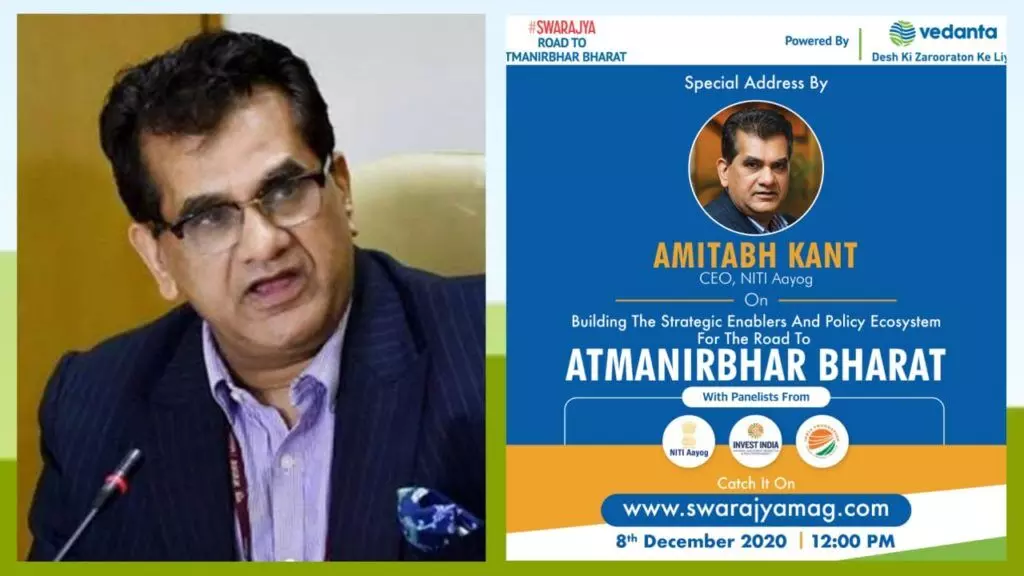
The hazard signs in Kant's clarion call
text_fieldsThe political school that form the union government of India, the sangh parivar has an article of faith derived from its ideologue's bunch of thoughts: that the concept of democracy as a government by the people and for the people is a fallacy; monarchy is a glorious system that has given peace and prosperity to the people and lasted thousands of years. And ever since this Hindutva movement secured sufficient majority in parliament, it has been successfully conducting experiments on how democracy can be turned into a myth through practice. The Narendra Modi government through fast-tracked bills and ordinances, has been jettisoning many lofty principles and solutions on complex issues - which the architects of the constitution had arrived at after long and detailed deliberations - and thus imposing on the citizenry its autocratic rule typical of Hindutva. Bifurcating the state of Jammu & Kashmir, legislating absurd and impractical laws to imprison sections of population which they deem as internal enemies, rushing through laws that subject a large section of the population to racial expulsion and extermination, breaking the back of farmers and apportioning national resources including land to their crony tycoons within the country and abroad – all of this becomes easy only because the regime finds the silk garb of democracy handy to hide its dictatorial iron hand.
The farmers of north India are camped en masse in and around the capital of Delhi at a time when otherwise they would not have time to leave the farm, busy with harvest and ploughing the field. This is just as an offshoot of the government's arbitrary acts. The farmers are simply unable to accept anything less than withdrawal of the new farm laws which amount to mortgaging to monopolies the very agrarian system of the country. What is on display in the capital is the tussle between farmers trying to steer back the government to the path of democracy and the ruling system trying to woo them over to the dictates of autocracy.
The attitude of the current BJP government, as reflected in its response to the democratic agitations, is that the epithet of India as the largest democracy in the world has become an unbearable burden on the regime which seeks the best of both worlds: even as it wants to enjoy the privileges of democracy, it is unprepared to concede the rights that democracy behoves it to grant. The latest example of this is the over-riding statement about dictatorship by CEO of NITI Ayog, Amitabh Kant. Kant's lamentation is that radical reforms are a difficult task in India and that the country has too much of democracy. In the Indian context, according to the top planning official, it takes "a huge amount of political determination and administrative will to carry out these reforms which are being done". He mentioned in particular the sectors of mining, coal, agriculture and labour as the challenging areas for reform and added that "this government has at least demonstrated its political will to do hard-headed reforms and we need to see them through to become a major manufacturing nation". In his view, the next turn is that of the states and they should adopt a liberal approach. Kant's comments were made at a webinar jointly organised by the sangh parivar organ 'Swarajya' and the monopoly entity Vedanta.
Going by the philosophy of the organisers, the context of the webinar and the political background, it is clear that the NITI Ayog CEO was sharing the intolerance of the central government towards continuance of democracy in the country. A quick review of the reforms in the very sectors he mentioned would reveal the essence of Modi government's 'will' – which tantamounts to nothing but writing off the country's agricultural and mining resources in favour of investor tycoons. It was at a time when that sell-off showed signs of going beyond all limits, and the desperate farmers launched their all-out protest that Amitabh Kant's observations surfaced about the constraints of democracy and that too during a discussion on the theme of 'atmanirbhar', the synonym of self-reliance. It is an irony that at a time when the poor farmers of the country were out in protest, feeling the heat under the sun the top bureaucrat of planning in India was sitting in the lap of monopoly corporates and delivering his anti-democratic sermon. When subsequently it became a controversy, he made an attempt, though in vain, to wriggle himself out of it, but it was evidently far from a slip of the tongue and he was blowing the trumpet of his masters and fully aware of what they wanted. What is left to be known is whether that will also herald the last trumpet-blowing of democracy.
























